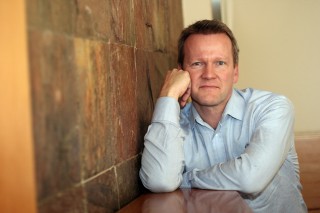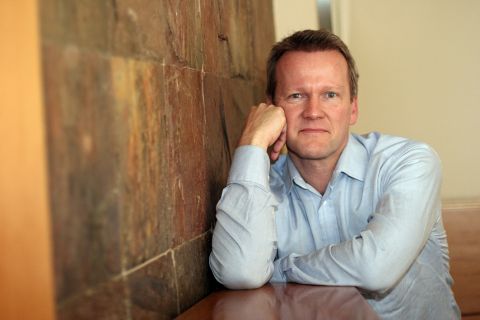Where does he work?
Pasi Sahlberg is currently visiting professor of practice at the Harvard Graduate School of Education, and was formerly director general of the Centre for International Mobility and Cooperation in Finland. He gained his PhD in 1996 at the University of Jyvaskyla, Finland.
Quick facts:
What is he best known for?
His Grawemeyer Award-winning book Finnish Lessons: What Can the World Learn from Educational Change in Finland, which explored how the country's shunning of school competition, school choice and external testing led to it being considered one of the greatest education systems in the world. He is seen as one of the leading critics of so called 'neo-liberal' education reforms.
What is it all about?
Sahlberg's seminal work explains not only how Finland took the opposite approach to countries like the UK and US – dominated by testing, public record of school quality, and the verdicts of school inspectorates – in becoming recognised as the greatest education system in the world, but also how other nations are suffering due to their market- and ranking-driven approaches.
Sahlberg has long argued competition in schools discourages cooperation and sharing of best practice. While much educational policy relies on market mechanisms such as private, free, and academy schools, Sahlberg reminds us that nations which increase school choice are suffering from declining academic results and increased school segregation. And, he asserts, in a nation such as Finland where there is little emphasis on teaching inspectorates, the teaching profession is heavily subscribed to and highly respected by society. He compares this to the profession in the US and the UK, suggesting that the likes of Teach First and Teach for America are symptomatic of disinterest in joining the profession.
What does he research?
Sahlberg's research does more than simply sing the praises of Finland's educational system – he has devoted a significant amount of his career to shattering myths around best education practice. In particular, he has advocated for alternatives to the use of 'big data' in informing educational policy and reform. He argues that although big data can highlight trends, it also ignores causality and does not spark interest in the nature of teaching and learning. Stahlberg is instead pioneering the use of 'small data' - a qualitative approach unearthing tiny clues which reveal big trends, and encourages the use of teacher input into the formation of educational policy.
He has also been an advocate for professional autonomy among teachers, and has spoken regularly about how Finnish teachers, unconstrained by anxiety over test results and long working hours, find the time to teach collaboratively and design bespoke curricula for their own students.
What he says:
"How do we evaluate our teachers? We never speak of this – it is irrelevant in our country. Instead, we discuss: How can we help them?"
What others say:
"Sahlberg [...] is an odd, diffident sort of ambassador, spreading the message about the 'Finnish Miracle.'" Peter Wilby, The Guardian
In a monograph for the Centre for Policy Studies, Gabriel Heller Sahlgren challenged Sahlberg's analysis of the reasons for Finland's success: "Existing popular explanations for the country's achievements, such as its lack of market reforms and accountability, do not withstand scrutiny. Instead, it suggests that the country's rise was, to a large extent, shaped by socioeconomic and historical factors, as well as the retention of a traditional educational culture."
Why you should consider reading more:
Having served as a Finnish school inspector (before the post was abolished), teacher, teacher trainer, adviser to the European Commission and over 45 foreign governments, and one of the policy advisers behind Finland's successful educational reforms, Pasi Sahlberg has examined the teaching profession from a variety of angles.
He now has the mantle of Finland's unofficial educational ambassador, promoting the Finnish way all over the world and serving as its most knowledgeable patron. His work is of interest to practitioners and policymakers alike.
Top reads:
Inspired by evidence-based practice? Check out EdResearch, our searchable library of education research and follow @EdCentral on Twitter for all our latest updates.

